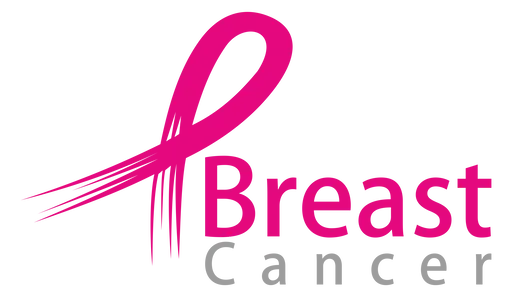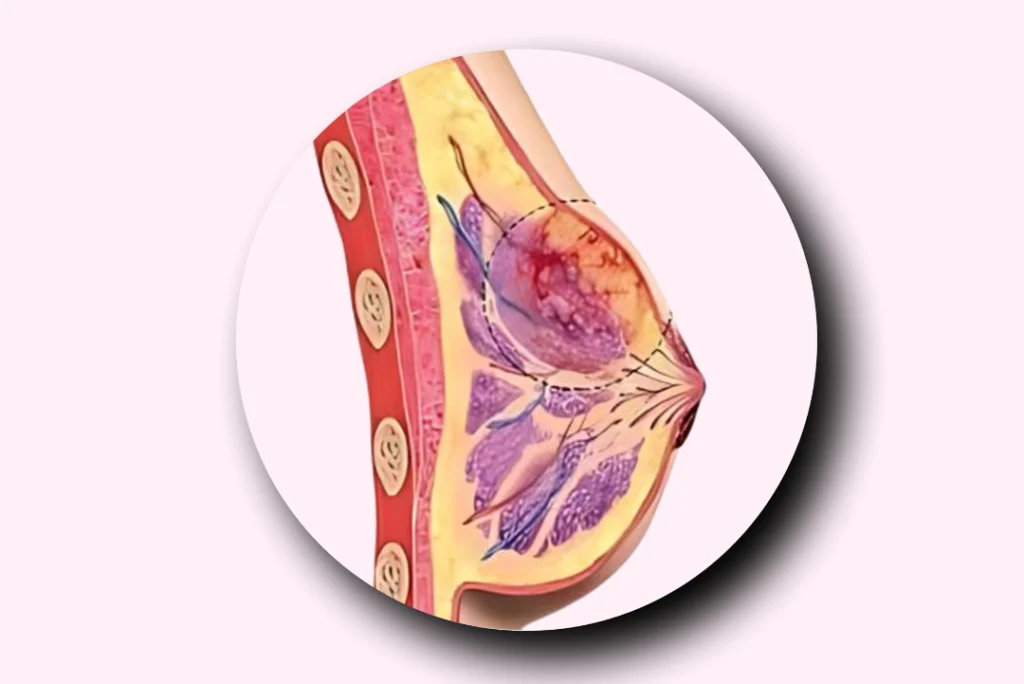Triple Negative Cancer in chennai is a unique subtype of breast cancer that does not express estrogen receptors, progesterone receptors, or HER2 protein. This type of cancer is aggressive and tends to grow and spread faster than other breast cancer types. The treatment options are limited because hormone therapies or HER2-targeted drugs do not work on this subtype.
In the world of cancer care, triple negative cancer in chennai stands out for its aggressive behavior and unique challenges in treatment. A diagnosis of triple negative breast cancer can feel overwhelming, but understanding this condition is essential for making informed decisions about your health. Whether you are in the early stages or dealing with stage 3 triple negative Breast cancer, knowing the symptoms and risk factors can empower you to seek timely and effective treatment.
What is Stage 3 Triple Negative Breast Cancer?
When it comes to Stage 3 Triple Negative Breast Cancer, the disease has spread to nearby tissues or lymph nodes but not to distant parts of the body. This stage is critical as it demands prompt and aggressive treatment, often combining surgery, radiation, and chemotherapy. Treatment options may differ depending on the location and size of the tumor and other health factors.
Signs of Triple Negative Breast Cancer:
Identifying the signs of Triple Negative Breast Cancer in chennai early is crucial for effective treatment. Common signs include:
- A lump or mass in the breast
- Changes in the shape or size of the breast
- Swelling of the breast
- Nipple discharge, especially if it’s bloody
- Pain or discomfort in the breast
Early detection of these signs can significantly improve outcomes for patients diagnosed with this aggressive form of cancer.
How Common is Triple-Negative Breast Cancer?
Triple Negative Breast Cancer (TNBC) accounts for approximately 10-20% of all breast cancer cases. Despite being less common than other forms of breast cancer, Triple Negative Breast Cancer (TNBC) in chennai tends to be more aggressive and is often diagnosed at later stages. It predominantly affects younger women and is more commonly seen in African American and Hispanic populations.
Factors that increase the likelihood of TNBC include:
- Younger age at diagnosis
- BRCA1 genetic mutation
- Family history of breast or ovarian cancer
Stage 3 triple negative cancer in chennai is particularly concerning because it represents a later stage, where the cancer has spread to nearby lymph nodes or other tissues, making treatment more challenging. Early detection of signs of triple negative cancer is crucial for improving treatment outcomes.
Symptoms of Triple Negative Breast Cancer in Chennai
The symptoms of Triple Negative Breast Cancer in chennai can vary, but often they are similar to other forms of breast cancer. However, because this type of cancer tends to grow and spread quickly, patients may notice symptoms sooner. Symptoms include:
- A lump that feels different from the surrounding tissue
- Unexplained breast pain or tenderness
- Redness or scaling of the nipple or breast skin
- Skin dimpling or puckering
These symptoms should not be ignored, and women experiencing any of these should consult a medical professional immediately.
Risk Factors for Triple Negative Cancer
While the exact cause of Triple Negative cancer in chennai remains unknown, some risk factors have been identified. These include:
- Being under the age of 50
- African-American ethnicity
- Carrying the BRCA1 gene mutation
- A family history of breast cancer Women with these risk factors should undergo regular screenings and be vigilant about any changes in their breasts.
Stage 3 Triple Negative Breast Cancer Treatment
Treatment for Stage 3 Triple Negative Breast Cancer in chennai is multifaceted. Since this stage is locally advanced, a combination of treatments is often necessary:
- Surgery: Lumpectomy or mastectomy to remove the tumor.
- Chemotherapy: Before or after surgery to reduce tumor size or eliminate remaining cancer cells.
- Radiation Therapy: To target and kill any remaining cancer cells post-surgery. Due to the aggressive nature of this cancer, treatment is often more intense than for other breast cancers.
Managing the Signs of Triple Negative Breast Cancer
Once diagnosed with Triple Negative Breast Cancer, managing the disease requires vigilant follow-ups with an oncologist to monitor progress and make necessary adjustments to the treatment plan. Staying committed to the prescribed therapies is essential, as this aggressive cancer demands a comprehensive approach to care. Additionally, patients must remain attentive to any changes in their body, as early detection of recurrence can greatly improve outcomes. Beyond physical health, addressing emotional well-being is equally important. Support groups and mental health counseling offer crucial resources, helping patients navigate the psychological challenges that often accompany such a diagnosis. These support systems can provide emotional resilience and a sense of community during a difficult time.
How is Triple-Negative Breast Cancer Diagnosed?
Diagnosing Triple Negative Breast Cancer (TNBC) in chennai involves a combination of physical exams, imaging tests, and biopsy procedures. A biopsy is necessary to confirm the diagnosis and determine whether the cancer cells are negative for estrogen, progesterone, and HER2 receptors.
Common diagnostic methods for TNBC include:
- Mammograms and Ultrasounds to detect abnormalities in breast tissue.
- Biopsy to analyze tissue and determine receptor status.
- MRI to evaluate the extent of the disease.
Doctors will also consider the Symptoms of Triple Negative Breast Cancer in chennai such as:
- A palpable lump in the breast
- Changes in breast shape or size
- Skin dimpling or redness
- Unexplained pain or tenderness in the breast
These signs of triple negative breast cancer in chennai can be noticed during routine self-exams or clinical evaluations. Recognizing these early symptoms and discussing them with your doctor can improve the chances of early intervention.
Symptoms of Triple Negative Breast Cancer Post-Treatment
Even after completing treatment for Triple Negative Breast Cancer, staying vigilant is critical because recurrence is a possibility. Symptoms of recurrence may include:
- New lumps: Be aware of any new lumps or masses, not only in the breast but also in other parts of the body.
- Fatigue: Persistent, unexplained fatigue can be a sign that the cancer has returned or spread.
- Unexplained weight loss: Sudden or continuous weight loss without an obvious cause should be taken seriously.
- Bone pain: This can indicate that the cancer has spread to the bones, a common site for recurrence.
- Shortness of breath: If cancer spreads to the lungs, breathing difficulties might develop.
Maintaining a schedule of routine check-ups and imaging tests like mammograms, MRIs, or CT scans is essential to detect recurrence early. These tests help monitor any changes in the body and allow timely intervention if new cancerous growth is detected. Additionally, keeping an open line of communication with your healthcare team can provide valuable insights into managing health risks and staying proactive in long-term cancer care.
Prevention and Lifestyle Changes
While it’s impossible to prevent Triple Negative entirely, some lifestyle changes can reduce the risk:
- Regular screenings: Mammograms and self-exams help detect any abnormalities early.
- Healthy lifestyle choices: Maintaining a healthy weight, limiting alcohol intake, and avoiding smoking can reduce your risk.
- Genetic counseling: If you have a family history of breast cancer or carry the BRCA1 mutation, genetic counseling can provide insight and preventive strategies.
- Prophylactic surgery: In some cases, women at high risk may choose to undergo preventive mastectomies to reduce their risk of developing breast cancer.
For those at high risk, genetic testing for the BRCA1 mutation can offer insight into personal risk and guide prevention strategies.
Management and Treatment for Triple Negative Breast Cancer
Treating Triple Negative Breast Cancer (TNBC) can be more challenging than other types of breast cancer due to the lack of targeted therapies. The absence of estrogen, progesterone, and HER2 receptors means that TNBC does not respond to hormone therapy or HER2-targeted drugs. Treatment often involves a combination of surgery, chemotherapy, and radiation.
Treatment options for Stage 3 Triple Negative Breast Cancer in chennai include:
- Surgery: Often, the first step is surgery to remove the tumor. In some cases, a mastectomy may be required, which involves the removal of the entire breast.
- Chemotherapy: Chemotherapy is the main treatment for TNBC, especially in more advanced stages like stage 3 triple negative breast cancer. Chemotherapy drugs are used to target and kill cancer cells.
- Radiation therapy: After surgery, radiation therapy may be used to destroy remaining cancer cells and reduce the risk of recurrence.
- Clinical Trials: For some patients, participating in clinical trials testing new treatments, such as immunotherapy, might be an option.
Common side effects from treatment include:
- Fatigue
- Nausea and vomiting
- Hair loss
- Increased risk of infections
Managing Symptoms of Triple Negative Breast Cancer and side effects involves supportive care, including medication and lifestyle changes. Additionally, emotional support and counseling are critical for helping patients cope with the challenges of diagnosis and treatment.
Conclusion
Triple Negative Cancer in chennai remains one of the most challenging forms of breast cancer, but advances in treatment continue to offer hope. Early detection through awareness of the signs of Triple Negative Breast Cancerin chennai and managing symptoms of Triple Negative Cancer in chennai can improve outcomes. For patients diagnosed with Stage 3 Triple Negative Breast Cancer, prompt and aggressive treatment is essential to combat this aggressive disease. Stay proactive, seek medical advice when symptoms arise, and follow through with all recommended treatments to give yourself the best chance at overcoming this diagnosis.





